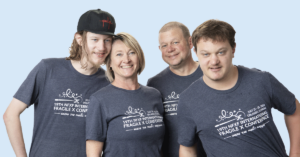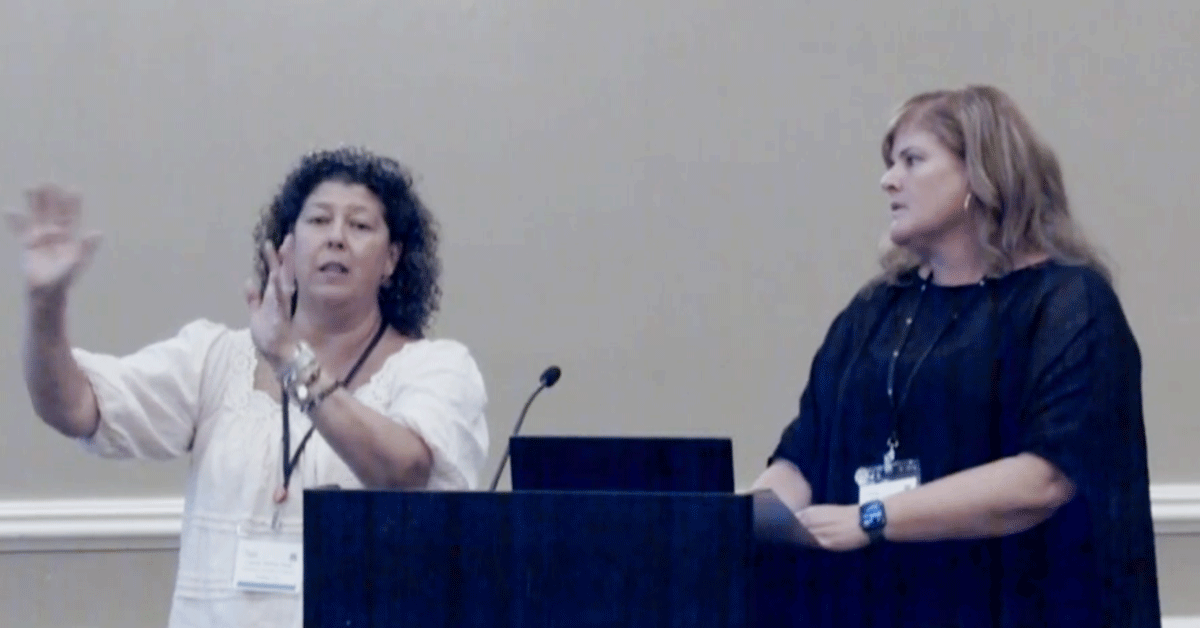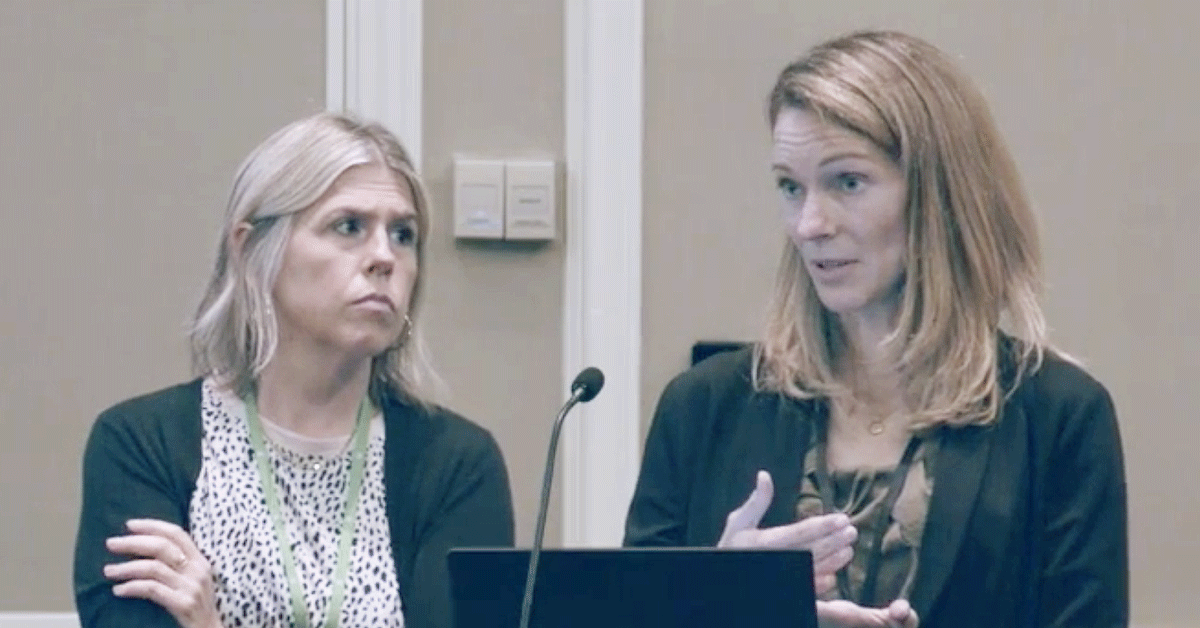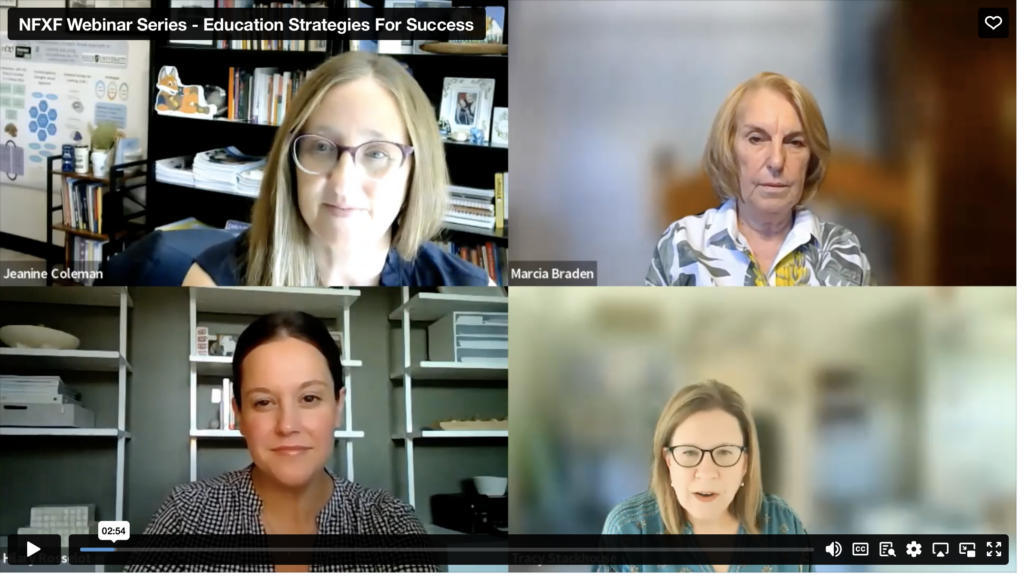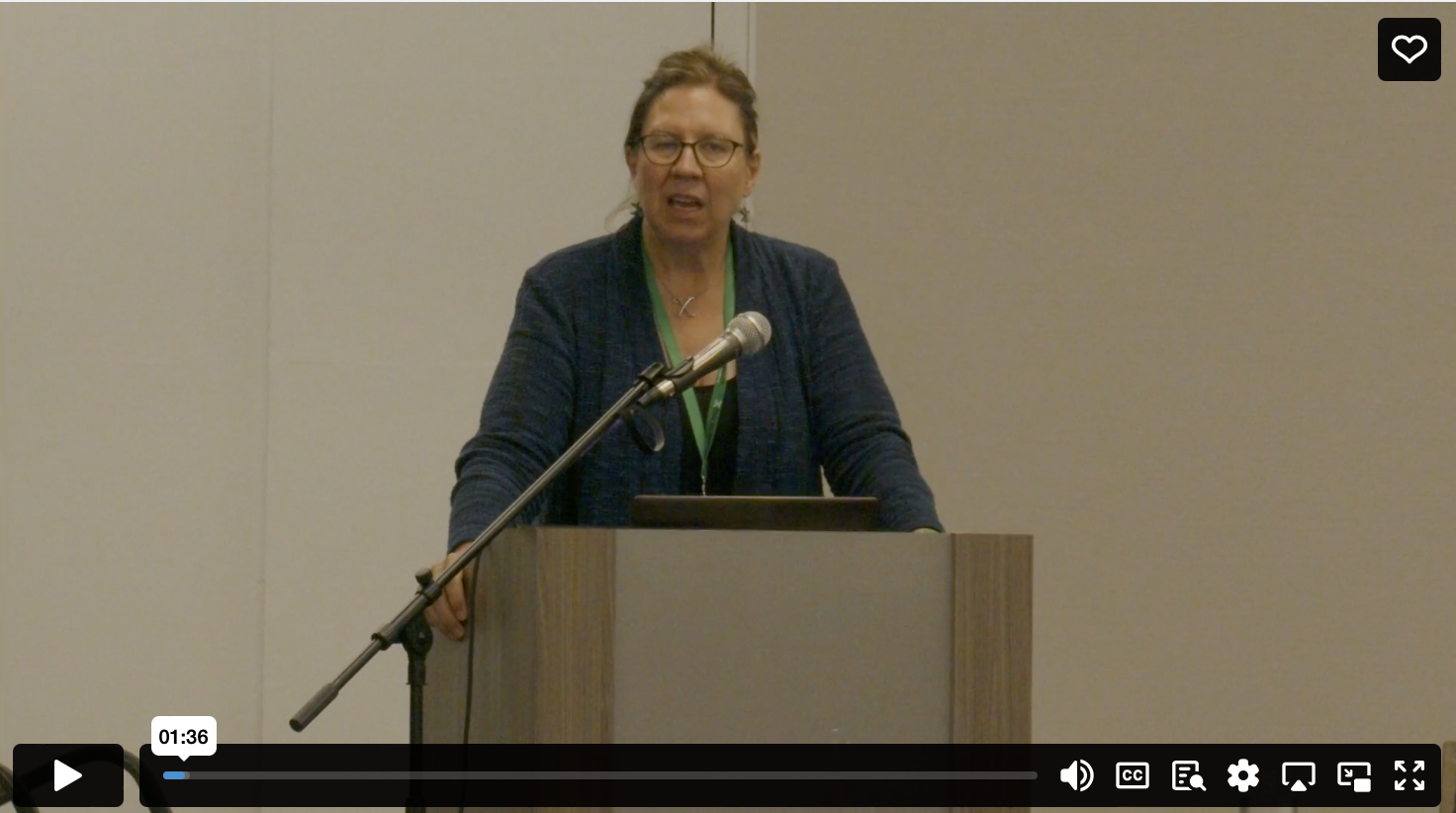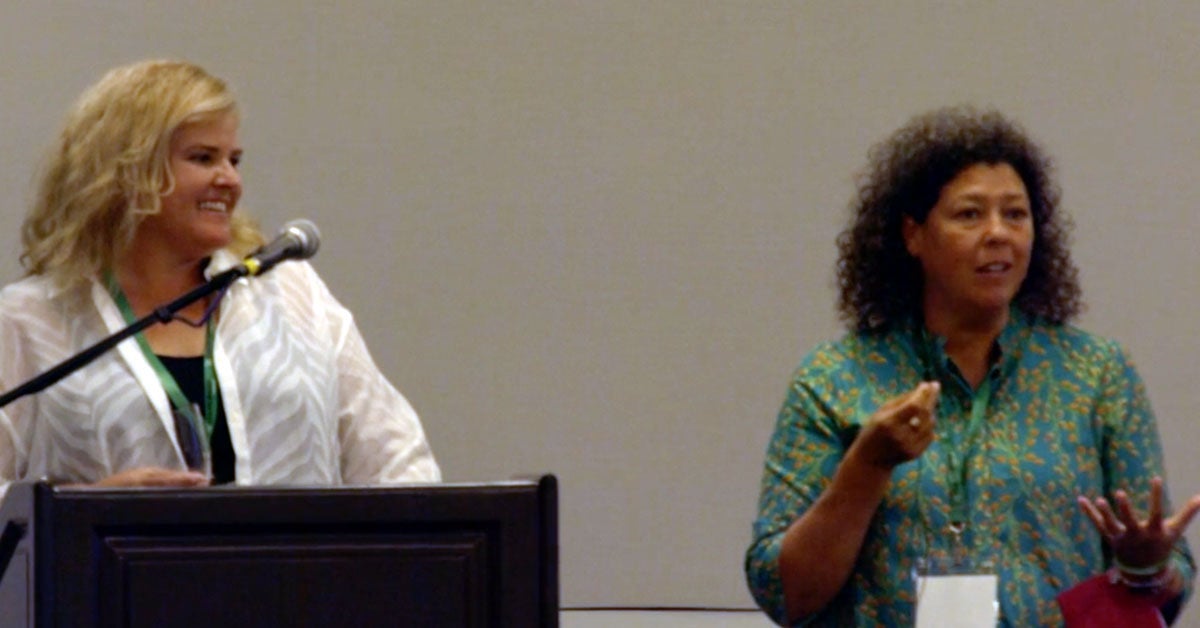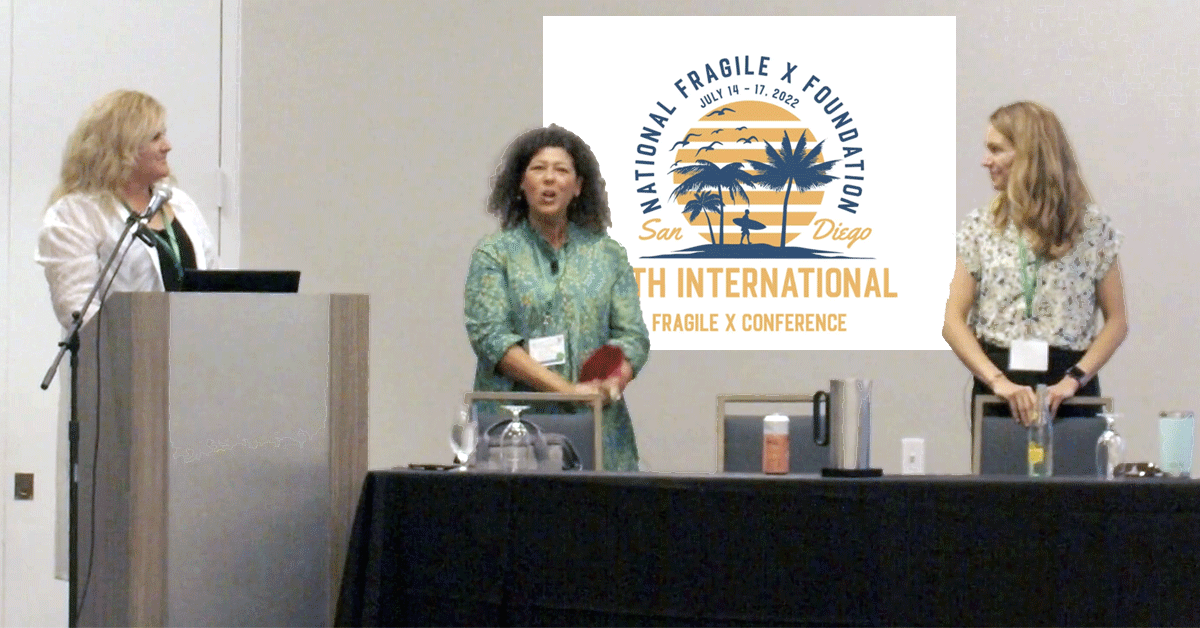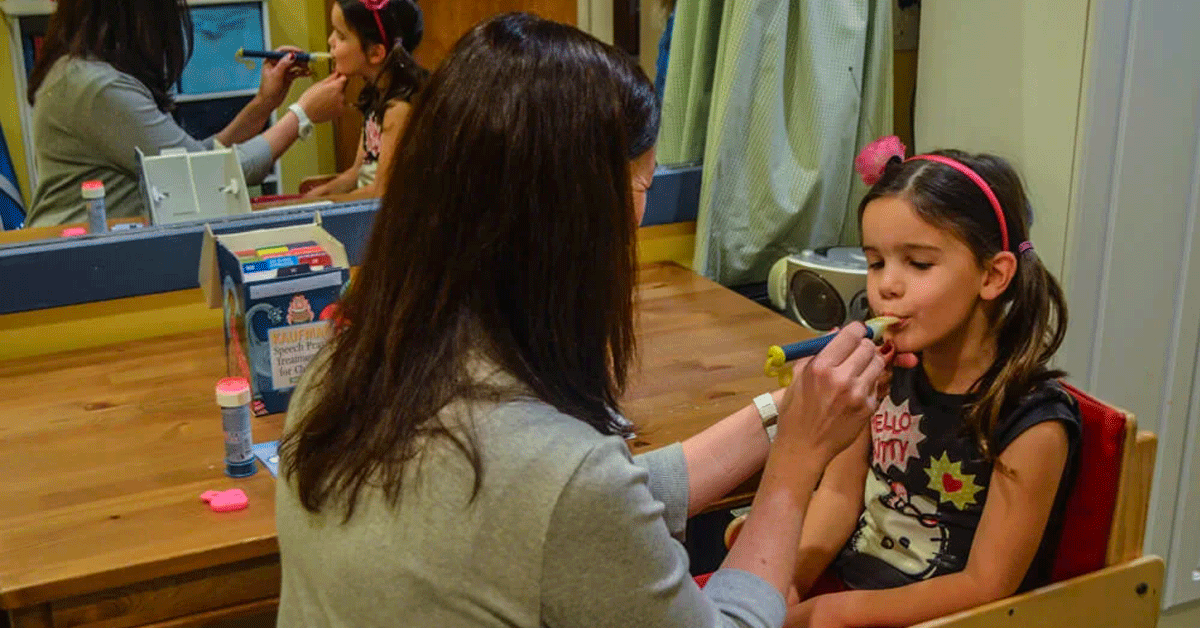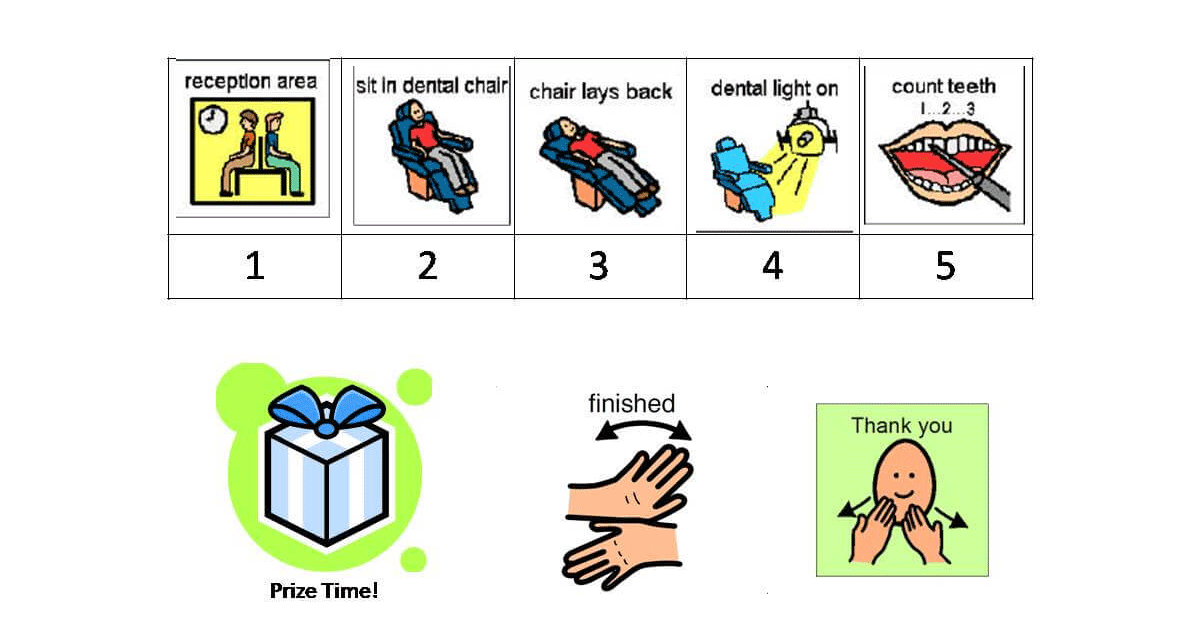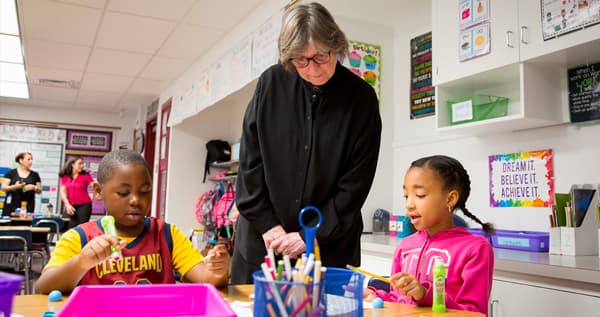Tracy Stackhouse discusses the importance of self-regulation in individuals with Fragile X syndrome, including tools, safety, and connection.
This family-friendly introductory session unpacks the complexities of assistive technology from early childhood to special education IEPs through to adulthood. Families will learn about no-to-high-tech assistive technology with examples and how it works.
Students with Fragile X syndrome are prone to hyperarousal and anxiety. It’s how their nervous systems are wired. The most effective way to help your student get the most from their time at school is to minimize the likelihood of hyperarousal and anxiety and maximize their focus and cooperation.
Anne Hoffmann and Kristen Vincent present tools that caregivers can use to encourage communication development for children during their early stages of development.
The Q&A discussion included panelists with expertise and suggestions to support individuals living with Fragile X throughout their lifespan.
In this presentation, participants learn why visual supports are an essential facet of home, school, and therapy.
This family friendly session (co-presented by occupational and speech therapy) will unpack the complexities of Assistive Technology (AT) from early childhood to schools / IEPs and through adulthood.
This interactive, family-friendly presentation focuses on considerations for school-age children with Fragile X syndrome.
Video modeling utilizes readily available technology to provide a model of appropriate social, language, behavior, or specific targeted daily living or job skills.
We use a variety of visually-based supports with individuals with FXS for a number of reasons, including that they are visual learners, and we need to take advantage of this strength.
The specific phenotype of Fragile X syndrome results in a particular way of thinking, what we call the Fragile X learning style.
An assortment of sensory-, routine-, and language-based daily life strategies from the experts at Developmental FX, drawn from evidence-based practice and knowledge of the neurocognitive development of children with FXS.


